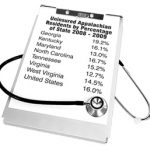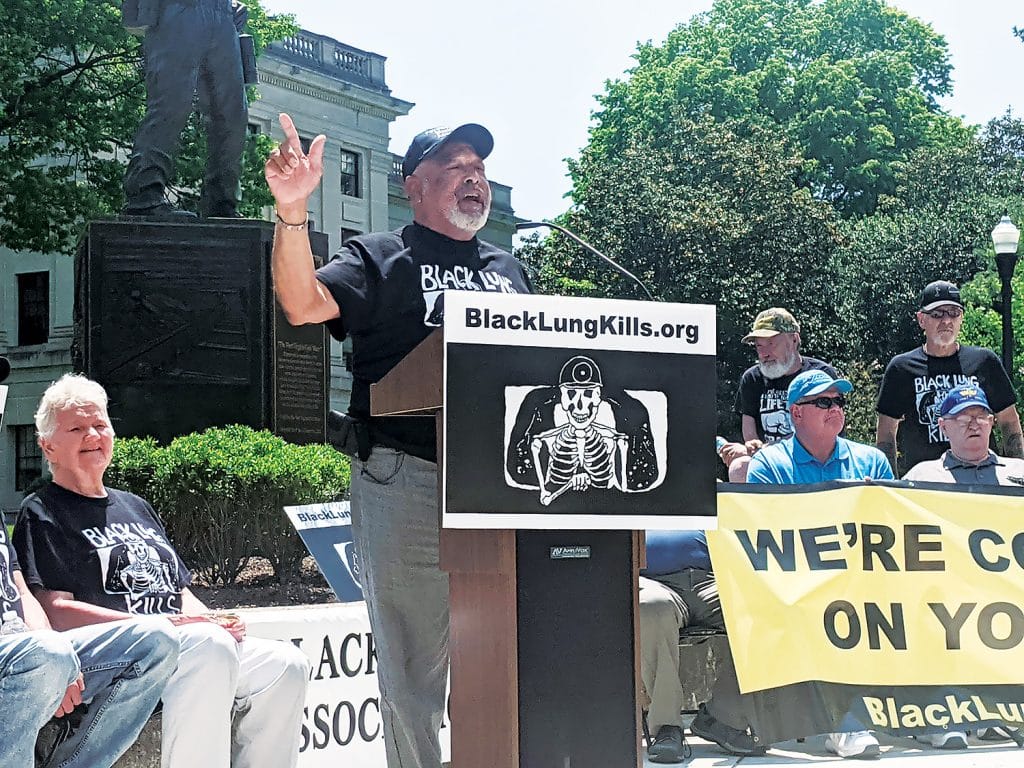Health Fairs & Clinics: Neighbors Healing Neighbors
Story by Jeff Deal
While the U.S. Congress wrestled with the question of uninsured Americans, many Appalachian residents were without health insurance in 2008 and 2009.
According to the U.S. Census Bureau’s Current Population Survey, the number of insured residents in the region ranges between one out of every five people in Georgia to one out of eight in Virginia, compared to a national average of one out of six. Growing concern regarding access to substantive health care is mounting.
To address the limited access to affordable healthcare, health professionals have united with local communities to address the shortfall of medical services within their communities at free health fairs and clinics around the region. Doctors, nurses and other providers team up with volunteers to donate their medical expertise to those lacking these critical services.
Wise, Va.,— lying in the southwestern corner of the state—hosted a 2010 Remote Area Medical Volunteer Corp “RAM” clinic in July. In just two and a half days, the confederation of volunteer community members and professionals met with more than 1,250 patients seeking treatment for ailments ranging from depression to pulmonary disease in the improvised examining rooms of the county’s fairgrounds.
Wise will once again offer this service when they hold the 11th annual health clinic July 22 – 24, 2011. Volunteers seeking to assist with the fair may submit their applications in April, 2011.
Grundy, Va.,—an hour and half northeast of Wise—is also the site of a yearly RAM clinic, taking place each October. According to RAM, his year’s Grundy clinic treated 766 patients an estimated $89,000 worth of medical care in just two days.
“Volunteering with RAM was a powerful experience that helped me decide to go to medical school,” says Patricia Feeney, a student at the Virginia College of Osteopathic Medicine in Blacksburg, Va., who volunteered at a Union, Tenn., RAM event last year. “We need more accessible and affordable long term care in Appalachia, and while we work for that, RAM gives us all a way to reach out to our neighbors and help meet immediate needs.”
Tennesseans in need of health services had opportunities to attend RAM clinics in Oneida, Knoxville, Nashville, Pigeon Forge, and Clinton; these sites will once again offer clinics during 2011.
RAM accepts all volunteers, in addition to physicians and health care professionals. RAM clinics provide eye exams, prescription eye glasses, and dental care, as well as primary care visits. For more information on the Remote Area Medical Volunteer Corp, visit: ramusa.org or call 1-877-5RAM-USA.
For a comprehensive step-by-step guide to available health insurance options by state, as well as an explanation of the health care reform legislation enacted by the U.S. Congress, visit healthcare.gov
______________________
Clinics Around the Region
In addition to the volunteer medical clinics organized by RAM, other free and/or accessible clinics offer health care for Appalachian residents in need.
The West Virginia Association of Free Clinics offers medical services at 13 sites throughout the state (www.wvafc.org or call 304-414-5941).
Fifty-nine member clinics, spread over the state, make up The Virginia Association of Free Clinics (www.vafreeclinics.org or call 804-340-3434).
North Carolina also has an Association of Free Clinics (www.ncfreeclinics.org or call 336-251-1111).
Residents without health insurance in Kentucky may contact Health Kentucky to gain information regarding health care opportunities in their area (www.healthkentucky.org or call 1-800-633-8100).
_______________________
Community Caregivers
A number of organizations are working to combat health disparities and improve the physical and emotional well-being of people in Appalachia. From public universities to statewide nonprofits to community clinics, there are programs throughout the region that provide medical care to the uninsured, advocate for healthcare legislation and educate children about the importance of healthy behaviors.
Appalachia Community Cancer Network is an initiative funded by the National Caner Institute aimed at reducing cancer disparities in the region through community participation in education, research, and training.
They focus on the prevention and early detection of cervical, lung and colorectal cancers, all of which have high incidence rates in the region. Based at the University of Kentucky, ACCN serves the northern and central Appalachian regions. www.accnweb.com
Health Kentucky works with a statewide network of volunteer health care providers, dentists, pharmacies, and pharmaceutical companies to provide free health care and medication to uninsured residents of Kentucky. Since 1984, they have provided free health care to more than 300,000 patients Visit: www.healthkentucky.org
Appalachian Regional Healthcare operates a system of hospitals in eastern Kentucky and southwestern Virginia. In 2010 they were named an Outstanding Rural Health Organization by the National Rural Health Association. www.arh.org
Healthy Appalachia Institute – part of UVa-Wise – provides policy makers, healthcare workers, educators and community members the necessary tools, resources, ideas and strategies to foster a healthy population. They provide community based research opportunities, service learning and health education. www.healthyappalachia.org
The Center for Rural Health Development Inc. provides leadership on rural health issues in West Virginia. They work with community health centers, hospitals, private physicians and dentists to improve the health of WV residents. They also work with banks to provide financing for healthcare providers strengthening rural health infrastructure. Visit: www.wvruralhealth.org
Rural Health Association of Tennessee advocates and educates on rural health issues including substance abuse, mental health, health professional education, disease prevention, oral health and emergency preparedness. Visit: www.rhat.org
Related Articles
Latest News

Leave a comment
Your email address will not be published. Required fields are marked *






Leave a Comment